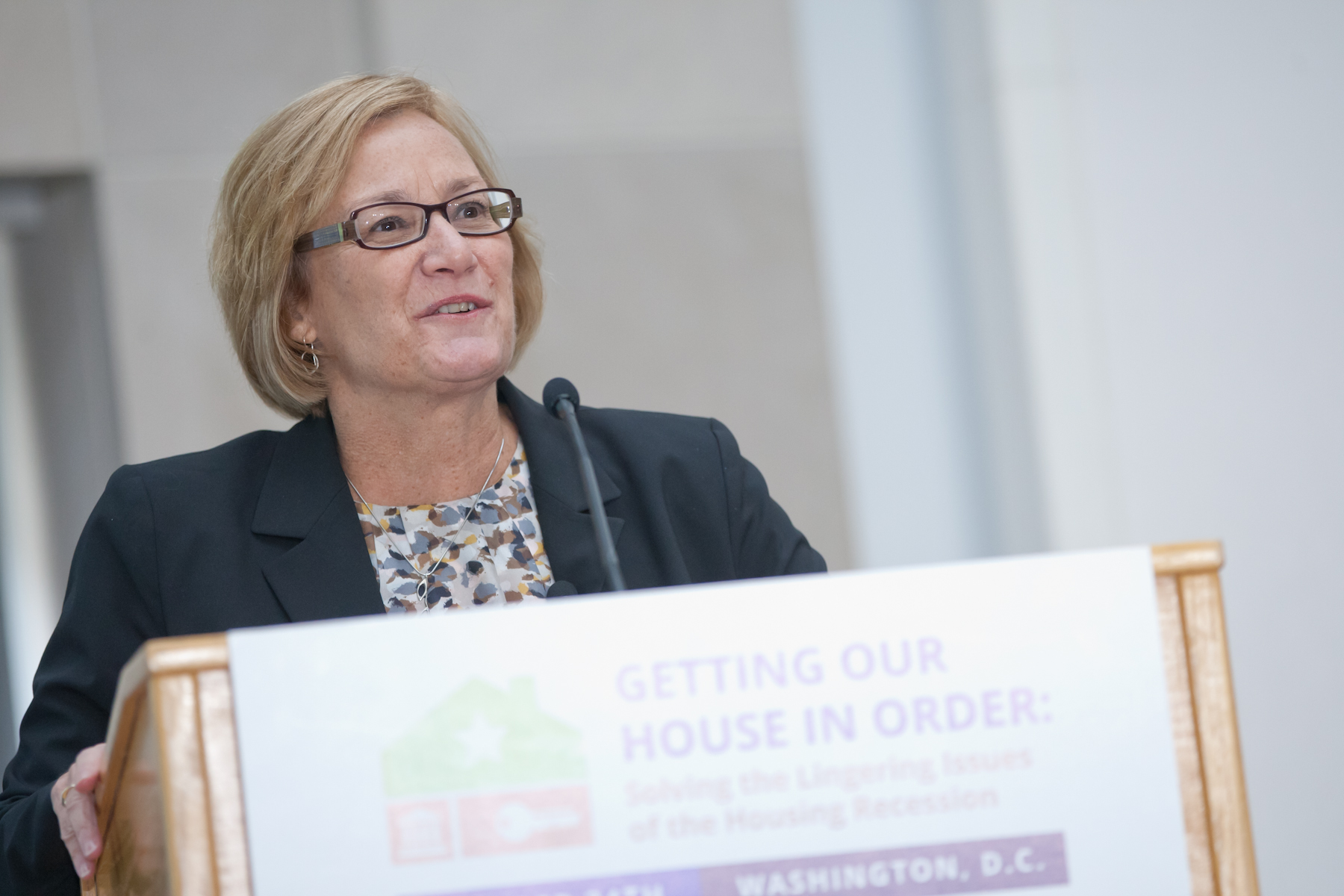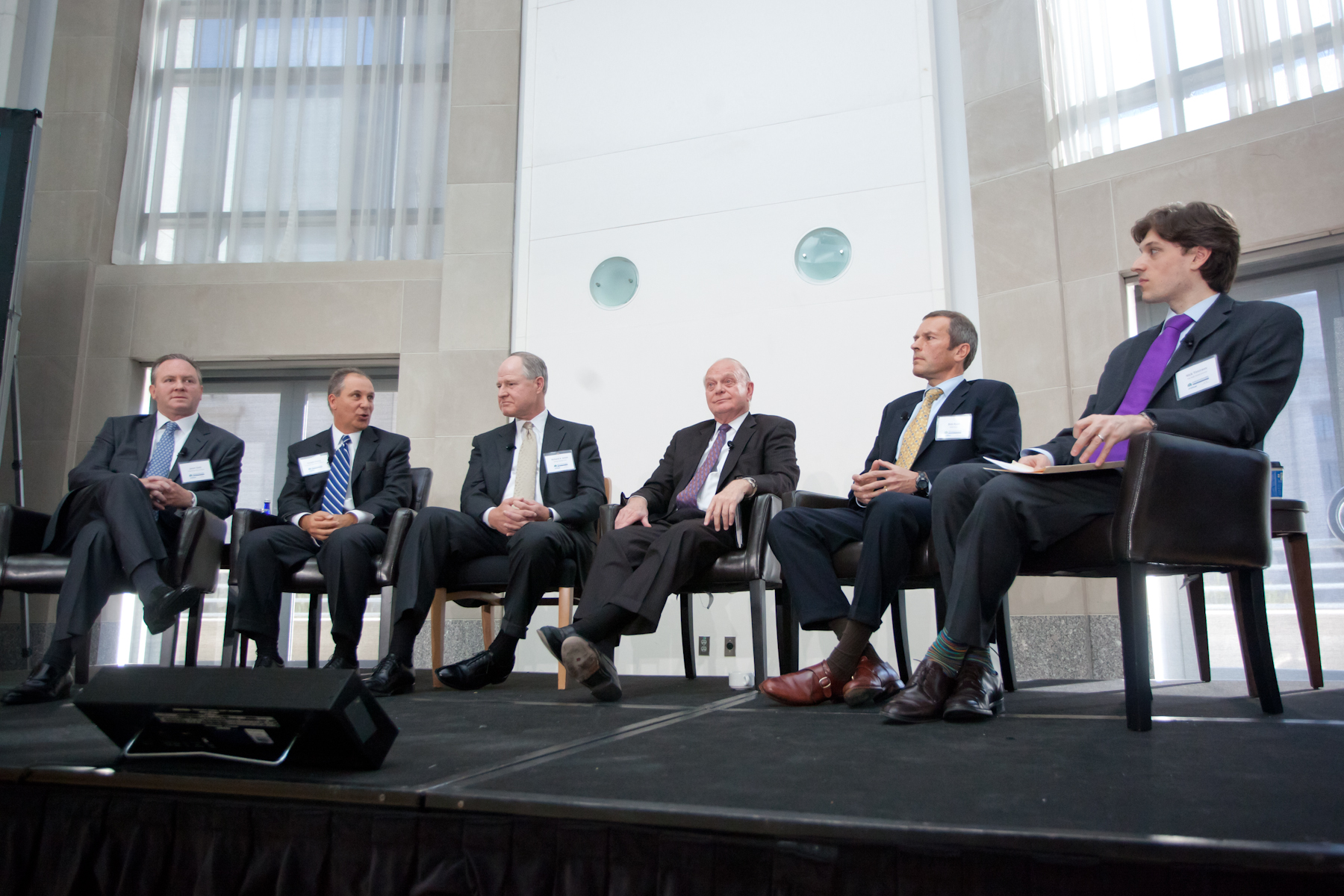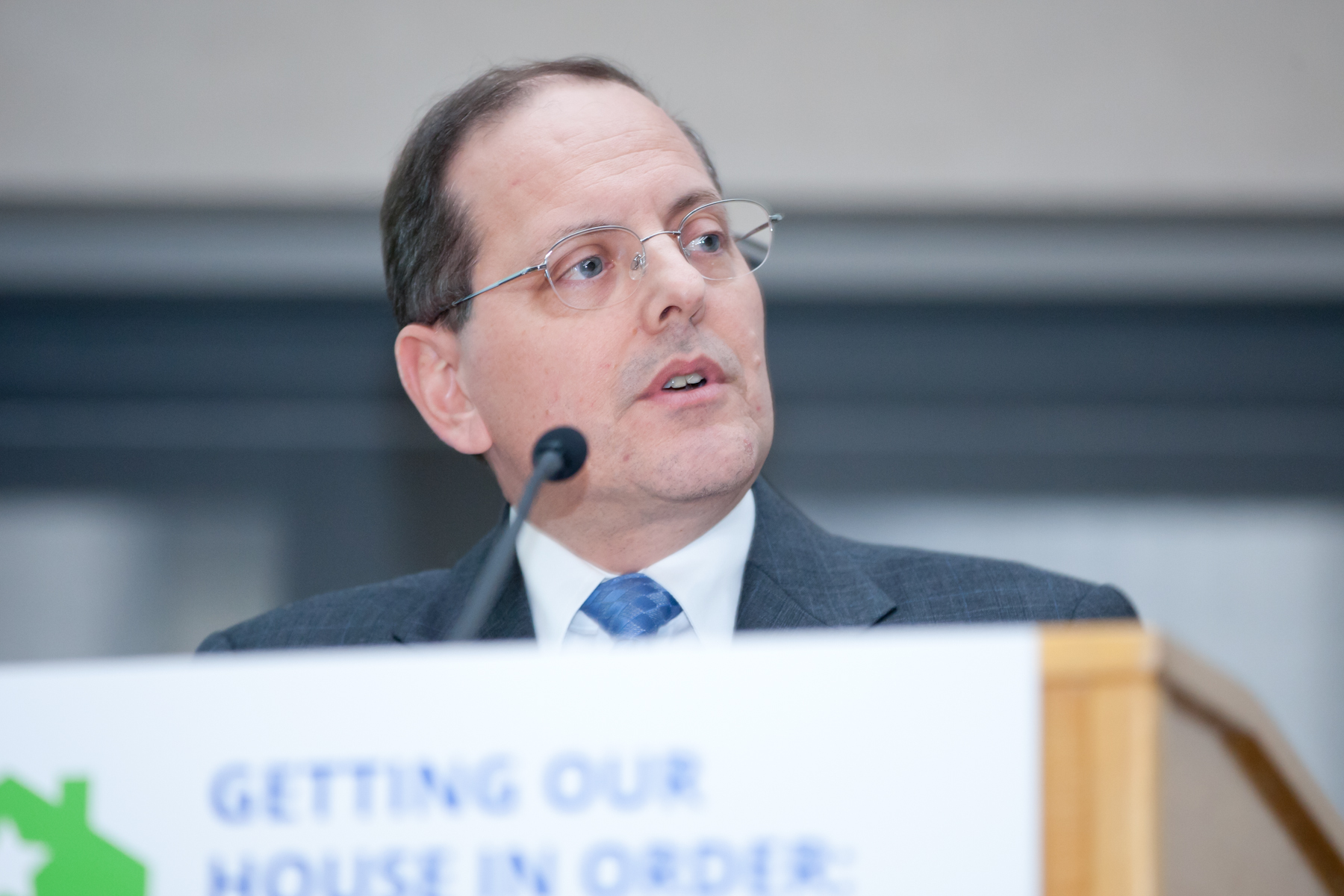Zillow and the Bipartisan Policy Center hosted a housing forum in Washington, DC on Oct. 24, which focused on the housing recovery, and proposed changes to the nation’s mortgage finance system.
Several of the country’s top housing experts and influential policymakers gathered to discuss (and help consumers understand) how proposed changes to the mortgage finance system may affect them.
“Getting Our House in Order: Solving the Lingering Issues of the Housing Recession” drew hundreds of people, and gave consumers the opportunity to ask their questions directly (in person and by social media) of the lawmakers and experts who presented.
Watch the full-day program here, read tweets under hashtag #housingfuture, or read highlights below.
Almost every speaker and panelist at the event stressed that the longer we wait to tackle the reform of Fannie Mae and Freddie Mac, referred to as the government-sponsored enterprises (GSEs), the harder it will be to solve. The government takeover of Fannie Mae and Freddie Mac was never intended to be permanent, and nobody seems comfortable with the current arrangement, in which roughly 90 percent of mortgages are backed in some form or another by the federal government.
FHA Commissioner Carol Galante, in a midday keynote address, pleaded with Congress to fully recognize the urgency of GSE reform.
“We all know that housing finance reform is necessary to ensure that our economy emerges stronger and more secure from the worst recession since the Great Depression,” Galante said. “This has got to be one of our top priorities in this country.”

Senator Mark Warner, D-Va., author of a bipartisan Senate plan for GSE reform, was even more blunt, saying, “The status quo isn’t going to work.” He also urged an end to political squabbles that sometimes get in the way of good ideas, and noted the support the idea already has from both sides.
“Perfect is too often the enemy of good in this town,” Corker said. “We have 10 senators on [the Corker-Warner bill], five from each side. I challenge anyone to find that kind of broad support for any other issue in this Senate.”
But despite a near-universal desire to get something done, there was an almost equally universal acknowledgement that nothing will likely get done until at least the next year, if not later. Two factors are responsible for holding up the process – practicality and politics.
“There’s no dry run on this,” said Jason Gold, director and senior fellow of the Progressive Policy Institute, stressing the importance of getting every detail of complex reform right. “If you just flip the switch on something unknown overnight, you’ll make 2008 look like peanuts.”
The political process is also lengthy, and can’t really be rushed.
“I’m a very practical person,” said Richard Smith, chairman, CEO and president of Realogy. “I think (GSE reform this year) has no chance.”

Four speakers represented plans for GSE reform during the program. Two of the plans — the plan from the Bipartisan Policy Center (BPC) and the Corker-Warner plan — are broadly similar, with each calling for Fannie and Freddie to be replaced by a single government entity responsible for guaranteeing conforming mortgages, with an explicit guarantee. But even the two most similar plans diverge – Corker-Warner explicitly calls for private capital to retain a 10 percent capital reserve as a backstop against potential losses. The BPC plan says the exact amount of reserves should be determined by regulators and can remain flexible.
A plan from Jim Millstein, architect of the restructuring of insurance giant AIG for the U.S. Treasury, advocated salvaging and re-capitalizing the good parts of Fannie and Freddie and selling them into the private market.
“The answer [to GSE reform] is staring us in the face, but in this town it’s a sacrilege to say,” said Millstein, chairman and CEO of Millstein & Co., L.P. “It’s Fannie and Freddie.”
And Rep. Randy Neugebauer, R-Texas, presented PATH legislation from the House of Representatives that would essentially remove the government guarantee as we know it entirely, leaving private capital to bear all the risks – and reap all the rewards – in a fully privatized system. He acknowledged that under a plan similar to PATH, some homeowners may not qualify for a mortgage, but noted that homeownership isn’t for everybody.
“There’s this idea in this country that homeownership is an entitlement,” Neugebauer said. “But America is a land of opportunity, and homeownership is an opportunity, not an entitlement.”

And these four plans are not the only proposals that exist. Several dozen ideas have been floated, some more formal than others, from sources both public and private.
Closing out the day was Acting FHFA Director Edward J. DeMarco, who captivated the audience by announcing that changes to the limits in amounts of mortgages backed by Fannie Mae and Freddie Mac – known as conforming loans – would not change until at least next spring. Instead, government guarantee fees charged by Fannie Mae and Freddie Mac would continue to be gradually raised, making them more expensive and making private, non-government options more competitive.
DeMarco also cautioned against complacency toward GSE reform now that Fannie and Freddie are profitable again.
“As Fannie Mae and Freddie Mac have begun to report positive net income there may be a growing perception that the problems that led to [their] conservatorship have been fixed,” DeMarco said. “That is not the case.”
